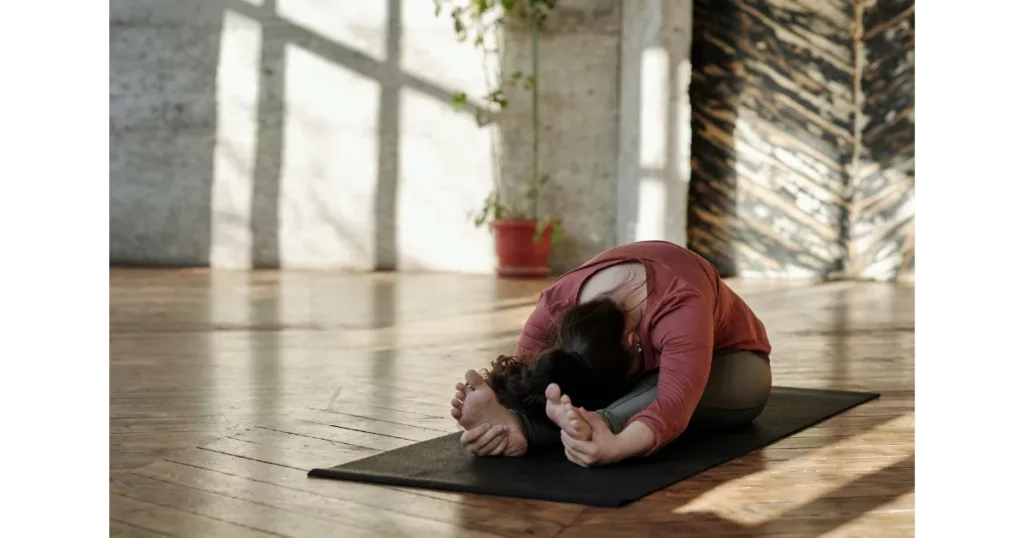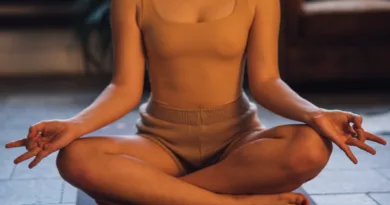Top 5 Meditation Practices That Will Change Your Life
Meditating is becoming more popular than ever, and with good reason. Research has found numerous mental and physical health benefits associated with daily meditation, such as improved focus, social connection, less stress & anxiety, better sleep quality, and creativity. However, the practice of meditation can be intimidating to those who are new to it or don’t quite understand it. To help you get started on your journey towards a calmer state of mind and healthier lifestyle habits, here are five simple yet powerful meditation practices that will truly change your life for the better!
Top 5 Meditation Practices
Mindfulness
1. Mindfulness meditation is a powerful form of meditation that helps improve mental, emotional, and physical well-being. It combines mindfulness – a heightened awareness of thoughts and feelings in the present moment – with meditative techniques such as breathing exercises, mindfulness body scans, yoga poses, and guided mindfulness practice. Practicing mindfulness meditation on a regular basis allows you to be in charge of your thoughts and emotions instead of struggling with them. The benefits of mindfulness meditation are vast; it can reduce stress, improve mental clarity and focus, help build resilience and coping skills for life’s challenges, enhance peacefulness and sense of joy, boost creativity levels and productivity, and improve physical health conditions such as headaches or back pain. With mindfulness meditation in your life, you can live the happy and balanced life you deserve.

Metta
2. Metta meditation is an ancient practice that centers around self-love and compassion. During metta meditation, one cultivates feelings of goodwill toward oneself and others by reciting positive affirmations. This type of meditation has been shown to reduce stress and increase feelings of joy and connectedness to the world. It also enhances empathy, nonjudgmental awareness, and improves mental focus. Metta Meditation can help build resilience, boost self-confidence, reduce anxiety, lower depression levels, and create a greater sense of overall well-being. The power of metta meditation lies in its ability to foster compassion for oneself and others, encouraging one to see all living beings with warmth, understanding, and connectedness.
Transcendental
3. Transcendental meditation (TM) is a unique meditation technique developed by Maharishi Mahesh Yogi in India in the mid-20th century which involves silently repeating a mantra or sound while seated comfortably with eyes closed for 15-20 minutes twice a day. TM has been found to reduce stress responses in the body while increasing states of restful alertness which can positively influence overall mental health and well-being over time. Transcendental Meditation is a meditation practice designed to help reduce stress, clear the mind, and create a foundation for a more healthy, balanced lifestyle.
This type of meditation differs from traditional meditative practices in that it involves the use of an individualized mantra – something chosen specifically for you – as opposed to focusing on specific objects or emotions. This unique feature allows transcendental meditation to transcend into something much deeper and intimate than most other forms of meditation. Through this type of practice, practitioners can gain access to a deeper inner state, which typically brings about greater mental clarity along with enhanced physical health. For anyone looking for a more peaceful, mindful, and harmonious way of life, transcendental meditation is certainly worth exploring.
Guided
4. Guided meditation is when someone else provides verbal guidance to take you through an inner journey within yourself– whether it be through visualizations, affirmations, or other techniques– helping you to connect more deeply with yourself on an intuitive level so that you can access greater insight into your own life experience. Guided meditation is an excellent way to cultivate mindfulness and relaxation in daily life. This practice uses guided words, visuals, or music to help individuals focus their thoughts and settle into a meditative state. Through this process, many are able to experience greater awareness of their emotions, body sensations, and physical environment. Guided meditation can be beneficial for anyone looking to reduce anxiety, increase self-awareness, or ease insomnia. It can even support creativity and mental clarity without requiring any prior meditation experience. With guided meditation, practitioners can unlock a sense of inner tranquility with ease.

Movement
5. Movement meditation is an overlooked practice intended to bring physical movement into the traditional practice of meditation. It involves deliberately slowing movement and finding movement sequences that are comfortable and enjoyable. This type of meditation can be used to come into the present moment, learning how to recognize and work through emotions while remaining relaxed throughout. Many people find movement mediation a more effective stress relief method compared to a static seated posture. A movement mediations session typically starts with a simple activity such as gentle stretching or qigong movements, progressing with deeper breathing exercises before finally lowering one’s body in order to relax into a meditative state. The focus on movement during this type of meditation can benefit us greatly when it comes to having inner peace and feeling truly content for long periods of time.
Conclusion
These are just five examples out of many different meditation practices out there! No matter what style you choose to explore – whether it be alone at home or attending group classes – make sure that it is something that resonates with you personally so that it becomes an enjoyable experience rather than feeling like another chore on your “to-do list”! With dedication and commitment over time, you will undoubtedly experience the transformative effects this ancient practice can offer us all! Check out this Mindful meditation article that also discusses the fundamentals of meditation.
This is not professional medical advice.



